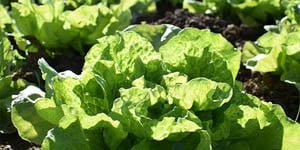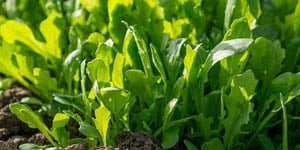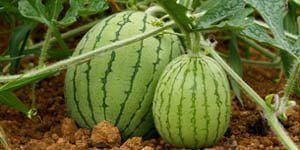Blog - ArchivesPosts of 01/2025
 Dolocrasia
- by
cronywell
Dolocrasia
- by
cronywell
The democratic system is going through a deep crisis due to the growing influence of economic power. It is no longer necessarily the most qualified people or those with the greatest political experience who access power, but those who have more resources for their campaigns, either by the number of donors or by their own personal fortune.
This phenomenon has generated a significant shift in citizen power. Decisions no longer fall to local political forces or traditional representatives; It is large corporations that, through their domination of economic flows, exert a determining influence on global politics.
The average citizen, constantly exposed to an avalanche of advertising messages, tends to favor candidates with greater media presence. These corporations, which make windfall profits through contracts in strategic sectors such as defense, energy, technology, entertainment, and gambling, have consolidated their power in the political system.
It is imperative to reform this scheme that distorts the essence of democracy and undermines the true decision-making power of the people in strategic matters. The transformation of the current system has become an urgent need to restore democratic balance and give the voice back to the citizenry.
The disconnect between rulers and governance, a product of this dynamic, has generated a growing distrust among citizens, who feel that their voice is drowned in a sea of corporate interests. Democracy, conceived as a system where each individual has a weight in decision-making, becomes a game of chess where the pieces are moved by those who have accumulated enough capital to influence the results. Campaign finance programmes, in many cases, are designed to sustain this vicious cycle, where promises of donor-friendly policies take precedence over the needs of the population.
The dilemma we face is critical: how can the citizen regain his power in a system where his only role seems to be that of receiver of manipulated information and voter in an election limited by economic interests? The solution lies not simply in regulating campaign financing, but in a deeper cultural and political transformation that empowers voters. This includes promoting civic education, encouraging citizen participation in decision-making at more local levels, and transparency in government action.
Likewise, reforms must consider the creation of alternatives to the large political parties dominated by money, allowing new political forces to emerge that truly represent the interests of the citizenry. Voting systems and public participation in elections must be reviewed to ensure that candidates are not only those who have access to large capital, but those who possess a genuine connection to the needs and aspirations of the community.
Finally, to reverse this situation of democratic crisis, it is vital to cultivate a sense of solidarity and shared responsibility among citizens, creating networks of mutual support that encourage the articulation of collective demands. Democracy must be refocused not only as a mechanism of election, but as a continuous process of collaboration and dialogue between citizens and their representatives, where the real power resides in the people. Only in this way will we be able to aspire to a democratic system that is not on a tightrope, but robust, inclusive and truly representative.
 What to sow in January?
- by
cronywell
What to sow in January?
- by
cronywell
What to sow in January?
In January, in the southern hemisphere, with summer at its peak, the specific requirements of each crop to be planted must be taken into account. It is important to learn about the care, watering, weeding and maintenance that each one needs.
In this time of high temperatures, the greatest attention should be on irrigation, as the soil experiences rapid evaporation and the soil tends to dry out. It is advisable to keep the soil moist, which is essential for the correct hydration of crops.
Another factor to consider is pests. You should carry out periodic surveillance, since the combination of humidity and heat, at this time of year, is ideal for the appearance of many insects.
Finally, the garden must be sheltered from the typical summer storms, which usually bring hail and strong winds.
Vegetables of the month of January in the southern hemisphere

Chard
Place: semi shade
Sowing: direct in crescent
Depth of sowing: 2 cm
Watering: normal
Germination: 7 to 9 days
Transplanting: 20 to 40 days
Harvest: 3 months on full moon
Beneficial association: arugula, tomato, carrot, beans Harmful
association: none

Artichoke
Place: semi shade
Sowing: direct or nursery in crescent
Depth of planting: 4 cm
Watering: normal
Germination: 12 to 15 days
Transplanting: 30 days
Harvest: 1 year on full moon
Beneficial association: peas, beans, lettuce, radishes Harmful
association: none

Celery
Place: full sun
Sowing: nursery in crescent
Depth of planting: 0.5 cm
Watering: abundant
Germination: 15 to 20 days
Harvest: 2 months on full moon
Beneficial association: eggplant, broccoli, cauliflower, spinach, cucumber, lettuce, beans, leek, cabbage, radish Harmful
association: potato and carrot

Broccoli
Place: semi shade
Sowing: nursery in crescent
Depth of sowing: 1.5 cm
Watering: abundant
Germination: 5 to 10 days
Harvest: 2 to 3 months on full moon
Beneficial association: peas, basil, celery, nasturtium, onion, coriander, dill, lettuce, chamomile, mint, oregano, potato, beans, beetroot, rue, thyme
Harmful association: strawberries, tomato

Onion
Location: full
sun Sowing: direct in the waning quarter
Sowing depth: 1 cm
Watering: abundant
Germination: 10 to 15 days
Harvest: 3 to 6 months on the new moon
Beneficial association: eggplant, broccoli, corn, strawberry, lettuce, melon, cucumber, leek, beetroot, cabbage, watermelon, tomato, carrot, Italian squash
Harmful association: peas, cauliflower, beans

Green onion (chives)
Location: full sun
Sowing: last quarter seedling
Sowing depth: 1 cm
Watering: abundant
Germination: 10 to 15 days
Transplanting: 20 days
Harvest: 3 to 4 months on the new moon
Charity: tomato, carrot
Harmful association: peas, beans, beans

Chives
Place: semi shade
Sowing: direct in crescent
Depth of sowing: 0.5 cm
Watering: normal
Germination: 12 to 15 days
Transplanting: 30 days
Harvest: 3 months on full moon
Charity: carrot

Cilantro
Place: semi shade
Sowing: direct in crescent
Depth of sowing: 1 cm
Watering: abundant
Germination: 10 to 12 days
Harvest: 2 months on full moon
Beneficial association: none
Harmful association: none

Cauliflower
Place: full shade
Sowing: nursery in crescent
Depth of sowing: max. 1 cm
Watering: abundant
Germination: 6 to 10 days
Transplanting: 3 months
Harvest: 6 to 7 months on full moon
Beneficial association: basil, celery, parsley, beetroot, beans, tomato
Harmful association: onion, strawberry, potato, cabbage

Lettuce
Place: semi shade
Sowing: direct in crescent
Depth of sowing: 0.5 cm
Watering: normal
Germination: 5 to 10 days
Harvest: 3 months on full moon
Beneficial association: chili pepper, garlic, artichoke, spinach, turnip, broad beans, melon, leek, radish, pumpkin, tomato, rue, cucumber, oregano, cabbage, watermelon
Harmful association: celery, parsley, sunflower, watercress

Melon
Place: semi-shade
Sowing: direct or in nursery in crescent
Depth of sowing: 3 to 4 cm.
Watering: normal
Germination: 3 to 7 days
Transplanting: 30 to 40 days
Harvest: 3 to 4 months on a full moon
Charity: chard, broccoli, corn, lettuce

Turnip
Place: semi-shade
Sowing: direct or in a nursery in the waning quarter
Sowing depth: 3 to 4 cm.
Watering: abundant
Germination: 6 to 8 days
Transplanting: 15 to 20 days
Harvest: 3 months on the new moon
Charity: peas, lettuce, cucumber, beetroot, cabbage
Harmful association: radish

Potato
Location: full sun
Sowing: direct in the waning quarter
Sowing depth: 7 to 8 cm (plant pieces of potato or seed potato)
Watering: normal, one week before harvesting do not water
Germination: 20 to 40 days
Harvest: 3 months on the new moon
Charity: eggplant, corn, broccoli, beans, leek, radish, cabbage, carrot
Harmful association: chili pepper, garlic, peas, strawberry, sunflower, cucumber, watermelon, tomato, pumpkin, Italian squash

Parsley
Place: semi shade
Sowing: direct in crescent
Depth of planting: 1 cm
Watering: normal
Germination: 7 to 25 days
Harvest: 1 month on full moon
Beneficial association: chili pepper, broccoli, green onion, chives, cauliflower, asparagus, corn, bell pepper, beans, cabbage, tomato
Harmful association: coriander, dill, fennel, lettuce, carrot

Beans
Place: full sun
Sowing: direct in crescent
Depth of planting: 3 to 5 cm
Watering: normal, avoid wetting the leaves
Germination: 7 to 10 days
Harvest: 3 months on full moon
Beneficial association: chard, basil, celery, peas, eggplant, corn, cauliflower, spinach, strawberry, lettuce, potato, cucumber, parsley, radish, cabbage, tomato, carrot, pumpkin
Harmful association: garlic, beetroot, broccoli, onion, chives, broad beans, leek

Leek
Place: semi shade
Sowing: nursery in the last quarter
Sowing depth: 1 to 2 cm
Watering: normal
Germination: 10 to 12 days
Transplanting: 30 days
Harvest: 4 to 5 months in new moon
Charity: garlic, celery, onion, spinach, strawberry, lettuce, potato, beetroot, cabbage, tomato, carrot
Harmful association: peas, broad beans, beans, radish

Cabbage
Place: full sun
Sowing: in nursery in crescent
Depth of planting: 0.5 cm
Watering: normal
Germination: 6 to 9 days
Transplanting: 30 to 40 days
Harvest: 3 months on full moon
Beneficial association: chard, celery, peas, dill, spinach, broad bean, lettuce, chamomile, mint, bell pepper, turnip, oregano, potato, cucumber, leek, beetroot, rosemary, rue, tomato, thyme
harmful association: garlic, strawberries, beans

Rosemary
Location: full sun
Sowing: in nursery in crescent
Depth of planting: 1 cm
Watering: normal
Germination: 15 to 30 days
Transplanting: 2 months
Harvest: 3 to 4 months on full moon
Beneficial association: cabbage, beans, carrots Harmful
association: none

Rocket
Location: full sun
Sowing: direct in crescent
Depth of sowing: max. 1 cm
Watering: normal
Germination: 8 to 10 days
Harvest: 3 months on full moon
Beneficial association: chard, eggplant, tomato, pepper
Harmful association: radish, cabbage, turnip

Watermelon
Place: full sun
Sowing: direct or nursery in crescent
Depth of sowing: 3 to 4 cm
Watering: normal, avoid wetting leaves
Germination: 6 to 8 days
Transplanting: 1 month
Harvest: 3 to 4 months on full moon
Beneficial association: peas, onions, corn, lettuce Harmful
association: potato

Carrot
Place: semi shade
Sowing: direct in the last quarter
Sowing depth: 1 to 2 cm
Watering: normal
Germination: 12 to 15 days
Harvest: 4 months on the new moon
Charity: chard, garlic, peas, eggplant, onion, broccoli, green onion, chives, cilantro, spinach, beans, cucumber, lettuce, bell pepper, tomato, sage
Harmful association: celery, coriander, dill, parsley, mint, fennel

Zucchini (Italian zapalalo)
Location: full sun
Sowing: direct or nursery in crescent
Depth of sowing: 2 cm
Watering: normal, avoid wetting leaves
Germination: 5 to 10 days
Transplanting: 30 to 40 days
Harvest: 3 months on full moon
Beneficial association: basil, onion
Harmful association: potato, cucumber
 How fake news deceives the mind: a Conicet study proposes keys to combat disinformation
- by
cronywell
How fake news deceives the mind: a Conicet study proposes keys to combat disinformation
- by
cronywell
How fake news deceives the mind: a Conicet study proposes keys to combat disinformation
The author of the study, Guillermo Solovey, presented the results at the last Annual Meeting of the Argentine Society for Research in Neurosciences, which was held in Buenos Aires.

One of the most striking findings is that people with more cognitive reflection have more bias, that is, they believe in what coincides with their beliefs.
Thefake news(fake news) spreads fasterand reach more people than true stories, according to a study published in the journalScience. Thus, they have the potential to harm people and society by, for example, fostering distrust in vaccination. Because of the risk that this represents,William Solovey, researcher at the Institute of Calculus (Conicet-UBA), is dedicated to studying how disinformation works and spreads.
"When there is information that we would like to be true, we have a tendency to believe it. This has an evolutionary and adaptive reason for being of the human being. That is why we need more initiatives related to changing the amount of false information that circulates and educating citizens more," the researcher introduced in dialogue with the CyTA-Leloir Agency.
Solovey spoke at the XXXIX Annual Meeting of the Argentine Society for Research in Neurosciences (SAN), which took place a few days ago in Buenos Aires. There he presented the results of one of his researches, published in 2023 inScientific Reports, about how disinformation works particularly on political issues.
Previous evidence suggested two important factors in explaining why people believe fake news. On the one hand, partisanship, that is, loyalty to an ideological group or identification with a political party. On the other, cognitive reflection, which is the ability to think analytically or reflexively before believing in something.
"Our work asks why people believe false information," Solovey summarized and explained that, when fine-tuning, two situations can be distinguished. "There are those who believe in things that are not true because they are unable to differentiate false information, either because they do not know, do not know or cannot distinguish it. It's like being at a bus stop and you see 64 and 39 from afar. Although the information reaches your eye, you do not have the ability to distinguish them and you are going to make mistakes. Sometimes you're going to say 39, sometimes 64 and sometimes 69."

Second, Solovey added, there are those who have a tendency to say that things are false or that everything is true. "Very credulous or very distrustful people, who need to have a very strong level of evidence to accept that something is true," he added. The idea of their study was to see how these two scenarios are modified among people who have more capacity for cognitive reflection.
To do this, Solovey's team conducted a test with 1353 people who evaluated whether verified statements – true or false – made by politicians were true or not. Indeed, they found that people tend to believe statements more if they agree with the politician who said them in a clear and strong relationship (partisanship). On the other hand, those who think more analytically are a bit more skeptical and tend to question statements more.
One of the most striking findings of the work was that the relationship between cognitive reflection and the ability to distinguish between truth and lies was neither very strong nor clear. "Those who had more cognitive reflection, at the same time had a little more partisan bias, they believed in what coincided with their beliefs," said the researcher.

In short, while thinking critically helps a bit to be more skeptical, partisanship is still the strongest factor in people believing a statement, even if it's false. "Even if the person has a high level of cognitive reflection, if they have a very high partisanship, it does not matter if the news is false, they will tend to believe it. In fact, this is even more accentuated if people have more cognitive reflection. Therefore, having more capacity for analytical thinking, critical thinking, cognitive reflection at some point is not obvious that it is an individual characteristic that favors distinguishing what is true or what is a lie because in any case it can accentuate partisanship, the tendency to believe everything that coincides with what one thinks," Solovey explained.
Regarding possible solutions to the problem of disinformation, the researcher clarified that options to mitigate it are being studied, but "there is still no universal strategy, a key." Quickly correcting false information that circulates or pre-announcing false information that can circulate on the networks is a possible path. He also mentioned initiatives that have to do with educating citizens and providing digital or media literacy tools. "They are important so that people are prepared and can also find what is false," he concluded.
SOURCE: CyTA-Leloir Agency
How will AI impact employment, skills, wages, and productivity?
Artificial intelligence (AI) has generated mixed opinions in recent years. Many people fear that AI will replace their jobs, but the reality is that AI will not take away jobs, but will transform the way we work. The evolution of AI has shifted from performing simple tasks, such as classifying emails, to more complex systems that can interact and solve problems. Tools such as virtual assistants and grammar correction applications have improved everyday processes, while technologies such as ChatGPT and DALL· E help generate creative content.

Instead of replacing humans, AI helps to be more productive and creative, leading to a change in work dynamics. Companies are looking for professionals who adapt and use these tools to automate repetitive tasks, increase creativity and optimize decisions. The real challenge is whether workers will know how to integrate AI into their work.
Understanding the new paradigms of artificial intelligence (AI) is essential for the benefit of society. The future of human-machine interaction will depend on our current decisions. Innovation is constant and cannot be stopped; AI will continue to advance and could reach a point where it surpasses human intelligence. Despite the fact that there are "open-source" AI tools such as Meta's Llama 2, these are still controlled by large tech companies in their own favor.

Since the launch of ChatGPT, we have seen a rapid increase in its popularity, reaching 100 million active users in just a few months. On the other hand, AI will also create new job opportunities, especially in fields such as data science and AI programming, with a projection of 97 million new jobs due to digital transformation. As AI evolves, it will begin to take on more complex tasks, including in creative areas, changing our perception of work and posing new challenges in the society-machine relationship.
With the advent of autonomous taxis in San Francisco, conflicts are likely to arise between autonomous vehicles and humans, sparking debates about liability in accident cases. There are also discussions about whether AI should have rights or legal personality, with some advocating considering them as entities with rights, while others oppose it.

The issue of ethics in AI was addressed by UNESCO in 2021, where recommendations were established to ensure that AI is a resource for all humanity. Ethics and regulation are central to the development of AI, as issues such as algorithmic discrimination and privacy are central concerns that need to be addressed.
As AI systems become more integrated into society, there is a need to question what, if any, rights should be granted to them. This is a complex issue that requires reflection in this new chapter of technological and labor evolution. Humanity's ability to adapt to technology will be key, and it is crucial to address these challenges ethically and responsibly so that AI benefits everyone, establishing appropriate regulations for its development. If we don't control their growth, we risk losing the ability to do so in the future





 How will AI impact employment, skills, wages, and productivity?
How will AI impact employment, skills, wages, and productivity?